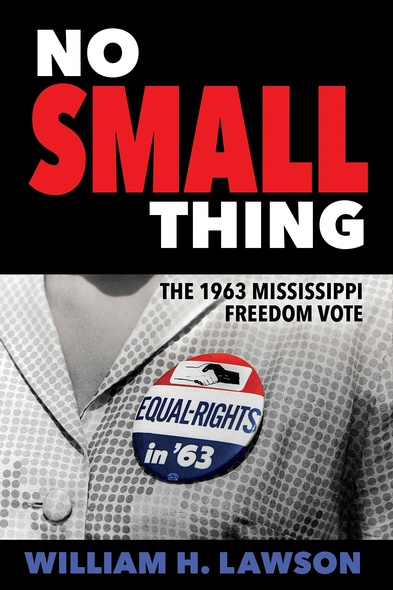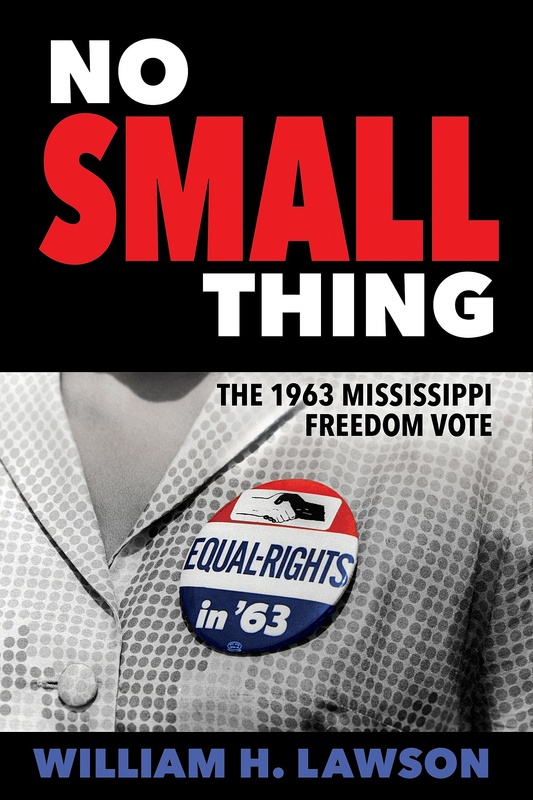
No Small Thing
The 1963 Mississippi Freedom Vote
The Mississippi Freedom Vote in 1963 consisted of an integrated citizens’ campaign for civil rights. With candidates Aaron Henry, a black pharmacist from Clarksdale for governor, and Reverend Ed King, a college chaplain from Vicksburg for lieutenant governor, the Freedom Vote ran a platform aimed at obtaining votes, justice, jobs, and education for blacks in the Magnolia State.
Through speeches, photographs, media coverage, and campaign materials, William H. Lawson examines the rhetoric and methods of the Mississippi Freedom Vote. Lawson looks at the vote itself rather than the already much-studied events surrounding it, an emphasis new in scholarship. Even though the actual campaign was carried out from October 13 to November 4, the Freedom Vote’s impact far transcended those few weeks in the fall. Campaign manager Bob Moses rightly calls the Freedom Vote "one of the most unique voting campaigns in American history." Lawson demonstrates that the Freedom Vote remains a key moment in the history of civil rights in Mississippi, one that grew out of a rich tradition of protest and direct action.
Though the campaign is overshadowed by other major events in the arc of the civil rights movement, Lawson regards the Mississippi Freedom Vote as an early and crucial exercise of citizenship in a lineage of racial protest during the 1960s. While more attention has been paid to the March on Washington and the protests in Birmingham or to the assassination of John F. Kennedy and the Freedom Summer murders, this book yields a long-overdue, in-depth analysis of this crucial movement.
The strength of Lawson’s work is his interdisciplinary approach to writing a lesser-known historical narrative. . . . Amid the vast historiography pertaining to the modern Civil Rights Movement, Lawson contributes to the existing scholarship as his approach shapes the Modern Civil Rights Movement as a literal media event at a time when the media was important to the success to the overall movement’s mission and goals.
The first-time author Lawson provides enough implicit and explicit modern-day application for today’s political or civil rights organizer or frontline, grassroots activist to make reading his well-organized and well-written book worth his or her time and finances. . . May the highly recommended No Small Thing not be the first and last volume by the impressive communications professor.
William H. Lawson is assistant professor in the Department of Communication at California State University, East Bay. He has published in such journals as Communication Law Review, Southern Communication Journal, and Advances in the History of Rhetoric.





